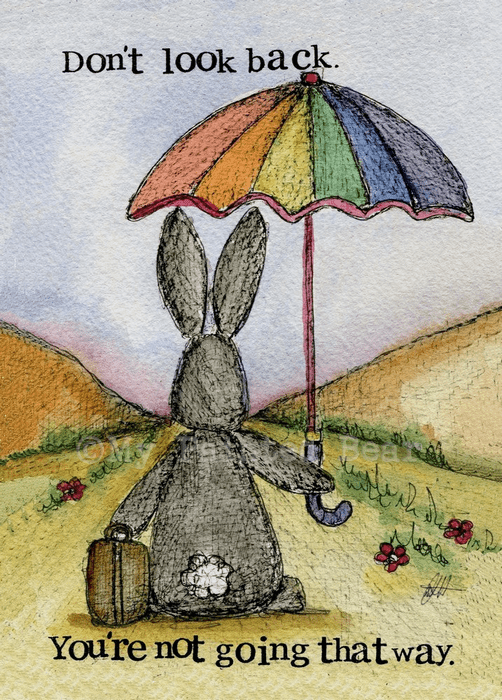备用音频 Backup Audio
若上方Spotify插件无法加载,可用下方音频条进行播放。If the Spotify plugin above fails to load, you can use the audio player below to play the content.
Two or three years ago, I first heard the story of Orpheus descending into the underworld to rescue his wife.Orpheus’ wife Eurydice died in an accident, and her soul descended into the Underworld. Deeply devoted to his wife, Orpheus resolved to journey to the Underworld. He sought to move Hades, Lord of the Dead, with his music, hoping to earn permission to bring Eurydice back to the living. But Hades imposed one condition: Orpheus must not look back at his wife until they had reached the surface. As they neared the exit, fearing she might lag behind, Orpheus turned to look at her. In that instant, Eurydice vanished forever, condemned to remain in the realm of the dead.
At the time, I couldn’t understand: couldn’t he just endure it? Why did he have to look back, ultimately losing his chance to save her? I was certain then that if it were me, I would endure it no matter what.
Until just a few days ago, I began to truly grasp this story. I realized that I am that person who constantly looks back. I often think of returning to the past and changing certain decisions; I deeply regret my mistakes and the choices I didn’t make, endlessly thinking, “If only I hadn’t done that back then, or if only I had done this instead.” I’m trapped in these thoughts, even losing faith in the future because of them. My friends say I dwell too much on the past. But why shouldn’t I look back? Must I just grit my teeth and keep moving forward?
The problem is, I truly feel trapped in a moment from the past, like being stuck on a level in a game, unable to progress no matter how hard I try. Perhaps someday in the future, I’ll find a way to beat it; but instead of choosing to bypass it and move forward, I stubbornly remain there. It sounds contradictory: both a deliberate choice and a passive imprisonment. My feeling is simply—I’m stuck.
Those unfinished stories haunt me; those unmet goals keep me awake at night. I cannot let them go, nor can I begin a new chapter. So I began to wonder: How should I move forward? How can I stop constantly looking back? I started searching online for answers and once again encountered that familiar myth—the story of Orpheus and Eurydice. This time, I think I understood the hidden meaning within.
Orpheus turned back out of desire to rescue his wife, yet also out of fear, curiosity, and the need for reassurance. This is human nature. Orpheus looked back because he didn’t believe his wife would truly follow him; he feared she might get lost behind him. It wasn’t that he didn’t want to move forward—he wanted to turn back and confirm she was still there. But in the silent darkness of the Underworld, she couldn’t respond. Yet that very silence and darkness made him crave confirmation even more, creating an endless cycle. We humans are no different. In love, life, and even family relationships, we constantly look back to confirm—to see if others still love us, if they still care. We want to confirm love remains → we want to draw closer → their response is vague → we fear loss even more → we look back again. We’ve poured our wisdom, effort, love, and sacrifice into holding onto certain people or things, yet they slip away. This isn’t because we’re inadequate, but because some relationships are destined to end, and some problems simply can’t be solved at this moment. “Looking back” is an attempt to control the outcome; “not looking back” is choosing to trust yourself.
I used to be just like him, filled with regret and inner turmoil, afraid to move forward, constantly checking to see if what was behind me was still there. But this “looking back” wasn’t for reflection or to better navigate the future—it was like the Orpheus’s dilemma: the moment you turn around, you remain trapped in the “underworld.”
Only death belongs wholly to the past. That is why dwelling solely on the past is like waiting for death. Refusing to move forward means having no future; without a future, one can never alter the present predicament.
I think when I first got stuck at a certain stage, unable to move forward. I feel there have been many pivotal moments in my life where I’ve been left with profound regret over things not turning out as I’d hoped. It seems to have started around my junior year of middle school, as the high school entrance exams approached. While others were making their final push, I grew increasingly anxious, my rankings steadily slipping. I’d gaze out the window, staring at the big tree before me, wondering: What will I be like ten years from now? What university will I attend? What kind of career will I have? Who would I meet? Who would be by my side? Just like Doris Day sang in “Que Sera, Sera”: “What will I be? Will I be pretty? Will I be rich?” Back then, I was filled with doubts and fantasies about the future. Yet through high school, college, graduation… I experienced too many disappointments and regrets beyond my control. Looking back, I often feel sorry for that younger self sitting by the window. Back then, I yearned for the future, but now I’m trapped by the past. I constantly wish I could return to those moments of regret to change the outcome, filled with countless “what ifs” and remorse over what I would or wouldn’t have done. Yet every attempt only drags me into endless self-consumption and self-blame—all for nothing.
Oasis has a song called Don’t Look Back in Anger. As the lyrics say, “Will slowly fade away, So I start a revolution from my bed, Cause you said the brains I had went to my head, Step outside, summertime’s in bloom.” The past will eventually fade like smoke; the past remains just that. Step outside now—summer is in full bloom. Seizing the present and moving forward. Only the future can truly alter outcomes. The future is written by one present moment after another. Only by moving forward now can past regrets be redefined.
Perhaps one day, that pain will cease to matter; perhaps it will prove a turning point in life—like the old saying, “A blessing in disguise.” So much so that future events, as the song goes after “Que será, será,” become: “Whatever will be, will be The future’s not ours to see, Que será, será.” What must happen will happen; the future lies beyond our grasp. Let it be. Do your best and leave the rest to fate.


Leave a Reply